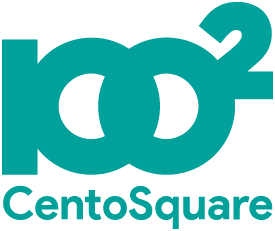January 15, 2024
0 Comments
By admin
In today's job market, the competition for top talent is relentless. As businesses strive for excellence, the key differentiator lies in the calibre of their workforce. The art of recruiting has evolved into a strategic game where organizations vie for the brightest minds to propel their success.
Did you know that 83% of employers consider attracting and retaining top talent their primary business challenge? Mastering the recruitment process has never been more critical in this cutthroat environment. The battle for exceptional professionals requires expertise and a carefully crafted approach that resonates with the best in the field.
Here, we are listing an insightful journey as we unravel the recruiting best practices that will capture your attention and revolutionize how you approach talent acquisition. From innovative strategies that enhance candidate experience to the latest trends shaping recruitment, this exploration is your roadmap to building a team that meets and exceeds your organizational goals.
Best Practices for Contemporary Recruitment Excellence
Staying ahead requires a mastery of contemporary recruitment strategies. Explore the following best practices to ensure excellence in your hiring process, attracting and securing top-tier talent for your organization's success.

1. Embrace Industry Trends
Staying abreast of current industry trends is paramount to securing top talent. The recruitment landscape is ever-evolving, with shifts in candidate expectations, technological advancements, and changes in the global workforce.
To succeed in this dynamic environment, recruiters must be cognizant of emerging trends, such as the rise of remote work, the increasing importance of employer branding, and the utilization of artificial intelligence in the hiring process.
2. Challenges and Solutions
Recruiters often grapple with many challenges in their pursuit of top talent. Whether it's the scarcity of specialized skills, the need for a more diverse workforce, or the complexities of navigating a rapidly changing job market, acknowledging and addressing these challenges is crucial.
From leveraging innovative sourcing techniques to implementing diversity and inclusion initiatives, understanding how to overcome obstacles will empower recruiters to build effective hiring strategies and assist in overcoming challenges.
3. Personalization in Recruitment
Personalization has become a key differentiator in attracting top-tier talent in a world inundated with generic job offers. Candidates now expect a tailored and humanized experience throughout the recruitment process.
Guiding recruiters on how to craft personalized communications, tailor job offers to individual aspirations, and create an overall candidate journey that resonates has become important. By understanding and implementing personalized approaches, recruiters can forge stronger connections with candidates, leading to increased engagement and higher success rates in securing top talent.
4. Employer Branding Strategies
A strong employer brand has the power to attract highly skilled professionals. In an era where candidates actively research potential employers, showcasing your organization's unique identity is essential.
From highlighting company culture and values to leveraging social media and employer review platforms, recruiters can take actionable steps to strengthen their employer brand and make their organization an irresistible prospect for top-tier candidates.
5. Employee Testimonials and Success Stories
Real stories from current employees offer an authentic glimpse into the inner workings of your organization.
You can humanize the employer brand by featuring genuine experiences and achievements, providing invaluable insights into the company's day-to-day life and growth opportunities. These narratives become powerful tools for building trust, credibility, and an emotional connection with prospective hires.
6. Innovative Recruitment Technologies
The recruitment landscape is undergoing a technological revolution, with new tools and platforms reshaping the hiring process, from artificial intelligence streamlining candidate screening to virtual reality enhancing assessments.
By staying tech-savvy and embracing these tools, you can gain a competitive edge, attract tech-savvy candidates, and demonstrate commitment to staying at the forefront of industry trends.
7. Diversity and Inclusion Initiatives
Creating a workplace that celebrates diversity and fosters inclusion is a moral imperative and a strategic advantage in talent acquisition.
Showcasing a commitment to diversity, recruiters can tap into a wider talent pool and send a message of inclusivity.
8. Flexible Work Arrangements
Flexibility is a key driver of success in the constantly evolving modern workplace. The traditional 9-to-5 work structure gradually gives way to more adaptable and responsive models. Flexible work arrangements not only cater to the diverse needs of employees but also increase productivity and satisfaction.
It can take various forms, including remote work options, flexible hours, compressed workweeks, and job sharing. Companies that offer flexible schedules attract top talent and promote a culture of trust and autonomy. This freedom leads to higher engagement and job satisfaction.
9. Continuous Learning & Development
The value of continuous learning and development for the ongoing hiring race cannot be overstated. To stay competitive and relevant, organizations must prioritize the growth and upskilling of their workforce.
A commitment to ongoing learning attracts high-calibre candidates and contributes to employee retention and organizational success. Establishing a culture of continuous learning involves providing access to training programs, mentorship opportunities, and resources that empower employees to expand their skill sets.
10. Metrics for Success
In contemporary recruitment excellence, metrics serve as the compass guiding organizations towards success. Defining and measuring key performance indicators (KPIs) that align with the organization's goals and values is essential.
These critical metrics include time-to-fill, cost-per-hire, candidate satisfaction, and diversity metrics. Time-to-fill measures how quickly a position is filled, indicating the efficiency of the recruitment process.
Diversity metrics track the representation of diverse groups in the candidate pool and hiring outcomes, promoting inclusivity and preventing biases.
By following these recruitment excellence, your business can find a significant impact in their talent acquisition processes.
To make your hiring process easier, connect with Hiring Solution to get a cost-effective solution to grow your business.

